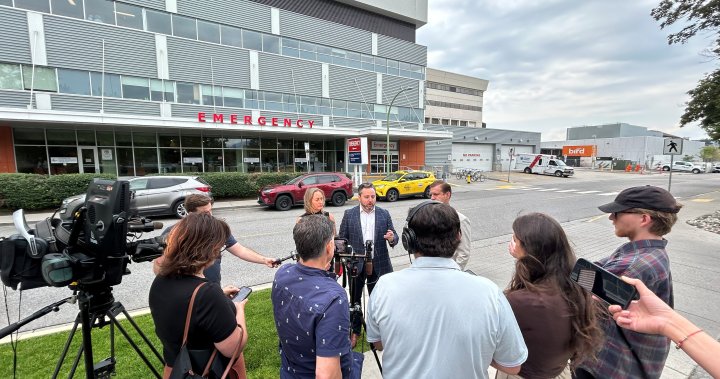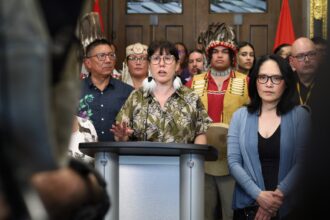The pediatric care crisis at Kelowna General Hospital has reached a breaking point, prompting an urgent call to action from Central Okanagan MLAs who have collectively demanded immediate intervention from B.C. Health Minister Adrian Dix. In an unprecedented display of cross-partisan cooperation, local representatives are sounding the alarm over what they describe as “unacceptable” conditions for children requiring medical care in the region.
The growing concern centers on the hospital’s inability to consistently maintain full pediatric services, leaving vulnerable young patients and their families in precarious situations. Reports indicate that children are routinely being diverted to facilities in Vancouver or Kamloops—journeys of several hours that place additional emotional and financial burdens on families already navigating medical emergencies.
“When a child is critically ill, every minute counts,” said Renee Merrifield, MLA for Kelowna-Mission. “Forcing families to travel hundreds of kilometers for care that should be available in our regional hospital is not just inconvenient—it’s potentially dangerous.”
The situation has been deteriorating for months, according to healthcare workers who have spoken out about staffing shortages and resource constraints. Several pediatric specialists have reportedly left the region, creating critical gaps in service that temporary measures have failed to address. The Central Okanagan has one of British Columbia’s fastest-growing populations, yet pediatric services have not kept pace with this demographic expansion.
In their joint letter to Minister Dix, the MLAs highlighted multiple cases where children with serious conditions waited hours for assessment before ultimately being transported out of region. One particularly troubling case involved a four-year-old with suspected appendicitis who spent over six hours in emergency before being transferred to Kamloops, nearly doubling the time to definitive treatment.
Interior Health has acknowledged the challenges but maintains that patient safety remains their priority. “We are actively recruiting pediatric specialists and implementing interim solutions to minimize disruptions,” said an Interior Health spokesperson. “However, we recognize that the current situation is not sustainable.”
Minister Dix has yet to formally respond to the MLAs’ letter, though his office indicated that addressing healthcare staffing challenges remains a top priority across the province. Critics point out that the Kelowna situation reflects broader healthcare challenges facing British Columbia, with similar pediatric care shortages reported in several regional centers.
Healthcare advocacy groups have joined the call for action, emphasizing that pediatric services should not be considered optional at a facility serving a population base of over 200,000 people. “Children deserve the same standard of care regardless of where they live in the province,” said Dr. Eleanor Samson, a retired pediatrician and healthcare advocate. “The current two-tier system where urban children receive prompt care while those in regional centers face uncertainty is ethically problematic.”
The Ministry of Health had previously announced a comprehensive healthcare staffing strategy, but implementation has been slower than anticipated. Healthcare recruitment experts point to competitive global markets for medical specialists and housing affordability issues in desirable communities like Kelowna as significant barriers to attracting and retaining qualified professionals.
As pressure mounts on provincial leadership to address the crisis, families throughout the Okanagan continue to live with uncertainty about where their children will receive care if medical emergencies arise. The situation raises important questions about healthcare equity across British Columbia’s diverse geography: can we truly claim to have universal healthcare when essential pediatric services remain inaccessible to substantial portions of our population?










